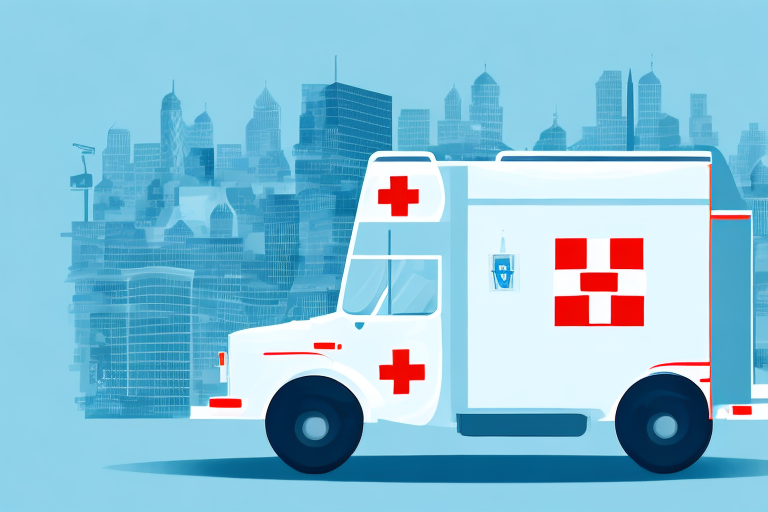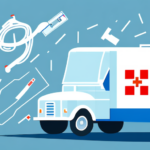Exploring Opportunities in Delivery Medical Supply Jobs
The healthcare industry is experiencing continuous growth, driving a significant demand for various medical professionals, including delivery medical supply professionals. These professionals are essential in ensuring the safe transportation and timely delivery of medical supplies and equipment to patients, doctors, hospitals, and other medical facilities. This article delves into the increasing demand for delivery medical supply professionals, the benefits and challenges of the role, essential skills and qualifications, and practical tips for securing and excelling in delivery medical supply jobs.
The Growing Demand and Job Outlook for Delivery Medical Supply Professionals
Expansion of the Healthcare Sector
Advancements in medical research and treatment have led to a booming healthcare industry, increasing the need for delivery medical supply professionals. These professionals handle everything from transporting sterile supplies like gloves and gowns to specialized equipment such as MRI machines and oxygen tanks.
Rise of Telemedicine
The surge in telemedicine and remote healthcare services has further amplified the need for delivery medical supply professionals who can deliver medical supplies directly to patients' homes. According to the Bureau of Labor Statistics, the demand for delivery drivers is projected to grow by 5% through 2029, aligning with the average growth rate for all occupations.
Impact of the COVID-19 Pandemic
The COVID-19 pandemic underscored the critical role of delivery medical supply professionals. The heightened demand for medical supplies and equipment during the pandemic highlighted the necessity of these professionals in maintaining the supply chain for healthcare facilities and patients in quarantine.
Benefits and Challenges of Working as a Delivery Medical Supply Professional
Benefits
- Sense of Fulfillment: Knowing you are delivering essential medical supplies to those in need can be highly rewarding.
- Diverse Work Environment: Opportunities to work with a variety of clients, from individual patients to large hospitals.
- Flexible Scheduling: Many positions offer flexible hours, supporting a healthy work-life balance.
Challenges
- Physical Demands: The job often involves heavy lifting and long hours of driving.
- Problem-Solving Under Pressure: Ability to quickly address delays or unexpected issues is crucial.
- Regulatory Compliance: Navigating complex healthcare regulations, including HIPAA compliance and insurance processes.
- Emotional Resilience: Dealing with patients in difficult or emotional situations can be taxing.
Essential Skills and Qualifications for Success
Key Skills
- Attention to Detail: Ensuring accurate and safe transportation of medical supplies.
- Communication Skills: Effectively communicating with clients, patients, and medical staff.
- Time Management: Planning efficient routes to ensure timely deliveries.
- Problem-Solving: Addressing and resolving delivery issues promptly.
Qualifications
- Valid Driver’s License: A clean driving record is often required.
- Physical Stamina: Ability to lift and transport heavy medical equipment.
- Educational Background: Knowledge of medical terminology and basic medical procedures can be advantageous.
- Certifications: Specific certifications or training may be required by employers.
Navigating the Application Process for Delivery Medical Supply Jobs
Job Search Strategies
- Local Medical Supply Companies: Reach out directly to companies in your area.
- Hospitals and Healthcare Facilities: Many institutions hire delivery medical supply professionals.
- Online Job Boards: Utilize platforms like Indeed, LinkedIn, and industry-specific websites.
- Networking: Connect with medical professionals and attend job fairs to discover opportunities.
Preparing Your Application
Ensure your resume highlights relevant experience, certifications, and skills. Tailor your cover letter to emphasize your attention to detail, reliability, and commitment to healthcare.
Meeting Employer Requirements
Research the specific qualifications needed for each position and obtain necessary certifications. Maintaining a clean driving record and demonstrating physical capability are often essential.
The Role of Technology in Shaping Delivery Medical Supply Jobs
Advancements in Logistics Technology
Modern tracking and dispatching software enhance the accuracy and efficiency of deliveries. These technologies allow for real-time tracking, route optimization, and better communication between drivers and dispatchers.
Emerging Technologies
- Drones: Being explored for rapid and efficient transportation of medical supplies.
- Autonomous Vehicles: Potential future use for safe and reliable deliveries.
Enhancing Safety and Quality
Integration of temperature and humidity sensors in packaging ensures that sensitive medical supplies remain in optimal conditions during transport, crucial for items like vaccines and medications.
Career Advancement and Opportunities in Delivery Medical Supply
Pathways for Growth
- Supervisory Roles: Progressing to manage teams of delivery professionals.
- Management Positions: Overseeing logistics and supply chain operations.
- Further Education: Pursuing degrees in healthcare management or logistics for advanced opportunities.
Building Expertise
Gaining experience and specialized knowledge in medical supply logistics can open doors to higher-level positions and specialized roles within the industry.
Salary Expectations for Delivery Medical Supply Professionals
According to the Bureau of Labor Statistics, the median annual salary for delivery drivers is $32,020. However, salaries can vary based on factors such as location, experience, and the specific nature of the job. Delivery medical supply professionals may earn higher wages, especially when handling specialized or high-value medical equipment.
Ensuring Safety and Compliance in Delivery Medical Supply Jobs
Regulatory Adherence
Delivery medical supply professionals must comply with strict safety regulations, including HIPAA guidelines to protect patient information and hazardous materials protocols for certain medical supplies.
Safety Practices
- Secure Transportation: Ensuring that all supplies are safely and securely transported to prevent damage or loss.
- Compliance Training: Regular training on safety protocols and regulatory requirements.
Impact of COVID-19 on Delivery Medical Supply Jobs
The COVID-19 pandemic has significantly increased the demand for delivery medical supply professionals. The urgent need for personal protective equipment (PPE), ventilators, and other critical supplies heightened the importance of efficient and reliable delivery services. Additionally, the expansion of telemedicine has created new opportunities for delivering medical supplies directly to patients' homes, further emphasizing the essential role of delivery medical supply professionals in the modern healthcare landscape.
Workplace Culture and Diversity in Delivery Medical Supply
Promoting Inclusivity
The delivery medical supply industry values diversity and inclusivity, often implementing employee resource groups and mentoring programs to support a varied workforce.
Respecting Diverse Backgrounds
Professionals in this field interact with a diverse range of clients and colleagues, necessitating a respectful and open-minded approach to different cultures and backgrounds.
Expert Advice for Building a Successful Career in Delivery Medical Supply
- Stay Updated: Keep abreast of industry regulations and technological advancements.
- Seek Mentorship: Connect with experienced professionals for guidance and support.
- Embrace Adaptability: Be open to new challenges and flexible in your approach to problem-solving.
- Continuous Learning: Pursue ongoing education and training to enhance your skills and qualifications.
By following these tips and remaining dedicated to professional growth, individuals can build a rewarding and impactful career in the delivery medical supply sector.
Conclusion
Delivery medical supply jobs are a vital component of the healthcare industry, offering a stable and rewarding career path for those dedicated to supporting medical facilities and patients. With the growing demand driven by technological advancements and the lasting impact of the COVID-19 pandemic, the role of delivery medical supply professionals is more crucial than ever. By developing the necessary skills, navigating the application process effectively, and embracing opportunities for advancement, individuals can thrive in this essential field.




















